Mathematics of Planet Earth Exhibition, London
행사
10.00am–17.00pm
크레딧
Our planet is a complex system with multiple facets including the physical (such as the atmosphere, the oceans, the soil and the ice sheets), biological (e. g. biodiversity, aquaculture, carbon cycle) and the human side (e. g. urban climates, power systems and social media). It is also a system at risk. The planet’s capacity to support life as we know it is in danger. The stability of the systems supported by Planet Earth is threatened by rapid changes in the balance between climate and the Earth constituents: atmosphere, oceans, rivers, the chemistry of earth components and many others. Human activity has grown to the point that it influences directly the global climate. It now has a strong impact on the capacity of the planet to be self-sufficient and threatens the stability of the systems supported on it. The challenges that our planet and our civilisation are currently facing cannot be addressed only by separate scientific endeavours. Instead, our efforts must be multidisciplinary, and their common language is mathematics. The mathematical sciences play a leading role in the joint effort of researchers to understand and quantify the challenges we face, and look for solutions. ‘Mathematics of Planet Earth’ is an international exhibition displaying exhibits, videos and computer programs. Collectively these illustrate how mathematics plays a role in answering essential questions that concern our planet. In graphics visualisations and hands-on experiments you will discover the contributions that mathematics makes to topics such as astronomy, fluid dynamics, seismology, glaciology and cartography.
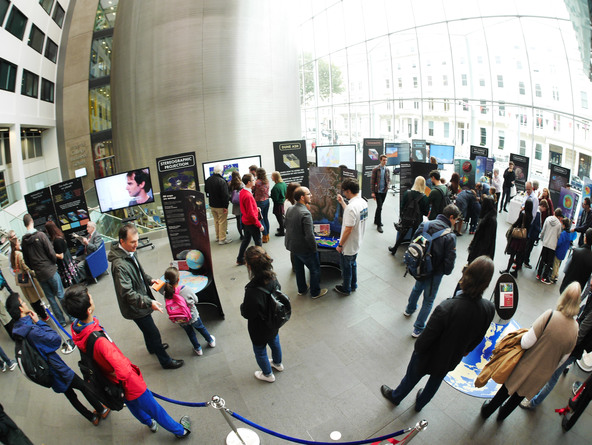
MPE exhibtition at Main Entrance, Imperial College London
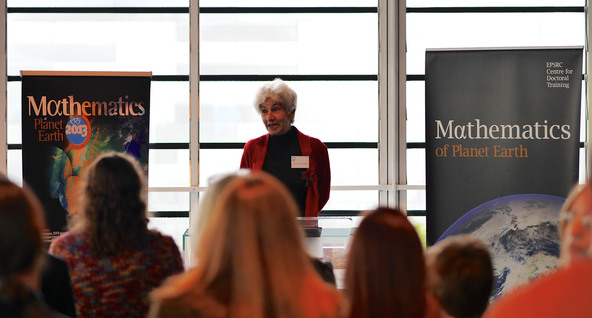
Prof. Christiane Rousseau, vice-president of International Mathematical Union, initiates the Mathematics of Planet Earth project in 2013. She held a speech at the opening ceremony.

MPE exhibition at Imperial College London
Prof. Dan Crisan of ICL and Prof. Christiane Rousseau cutting ribbon on opening ceremony.
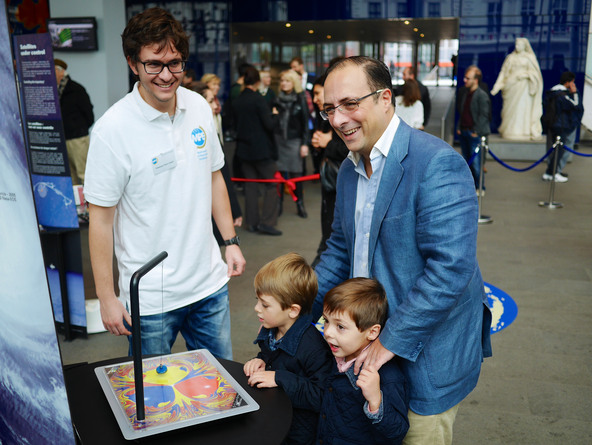
Turbulent Weather module

Prof. Dietmar Kröner from Uni Freiburg explaining his program Dune Ash.
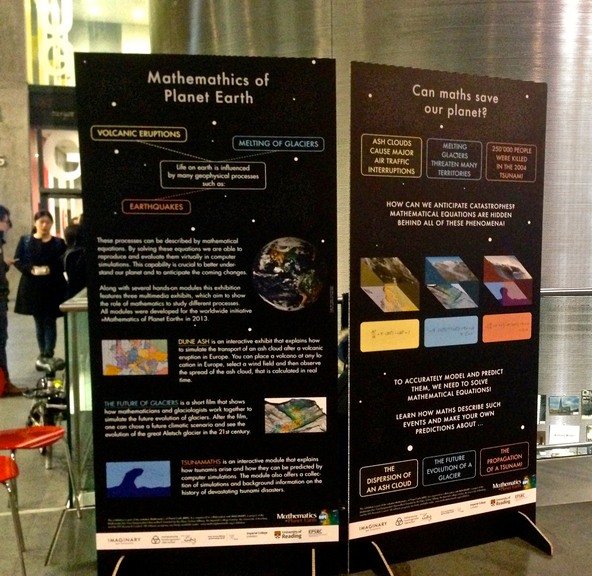
MPE exhibtion display
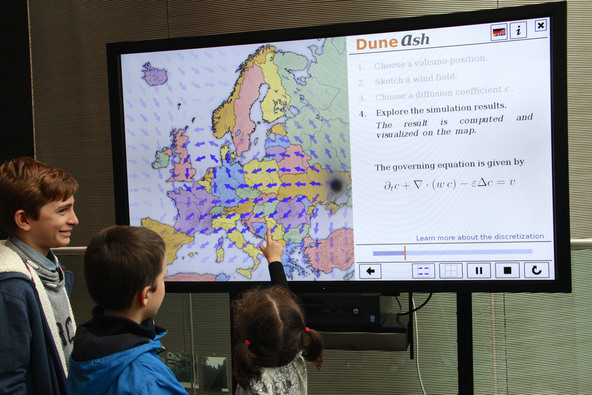
Dune Ash

Is the core of the Earth solid or liquid
Prof. Christiane Rousseau explaining how to detect the solid core of the Earth with seismic waves.

Solitons and Tsunamis
Exploring propagating waves live.

All maps are wrong
Learn more about this module here…

Dune Ash
Prof Daryll Holm from ICL sketching a wind field over Europe.

Satellite under control
Finding out how GPS works…

Solitons and Tsunamis
Exploring propagating waves live.

Dune Ash

Child exploring the hands-on exhibit Where is the sun at noon?

IMAGINARY team member Daniel Ramos exlpaining his program The Sphere of the Earth.

Permeable or impermeable?
Find out more about this module here…
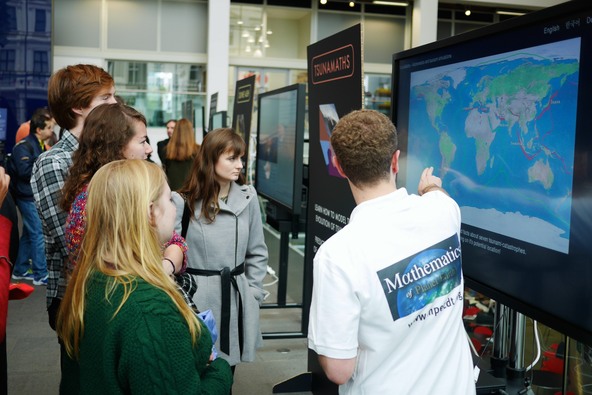
Student tour guide explaining the program Tsunamath

Ruth Wetzlar and Christiane Schirock from Heidelberg Laureate Forum with Prof. Dan Crisan and IMAGINARY team member Robert Wöstenfeld at the opening.

Exploring the core of the earth with the exhibit Is the core of the Earth solid or liquid?

IMAGINARY team member Daniel Ramos explaining his program The Sphere of the Earth

Dune Ash
Find out more about this program here…
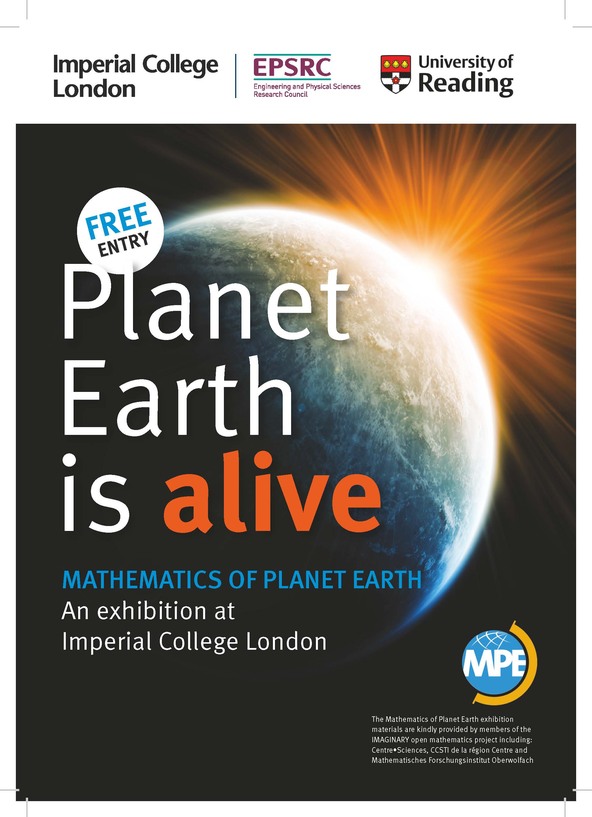
Exhibition Poster
모든 행사
- 1 중 35
- 다음 ›
